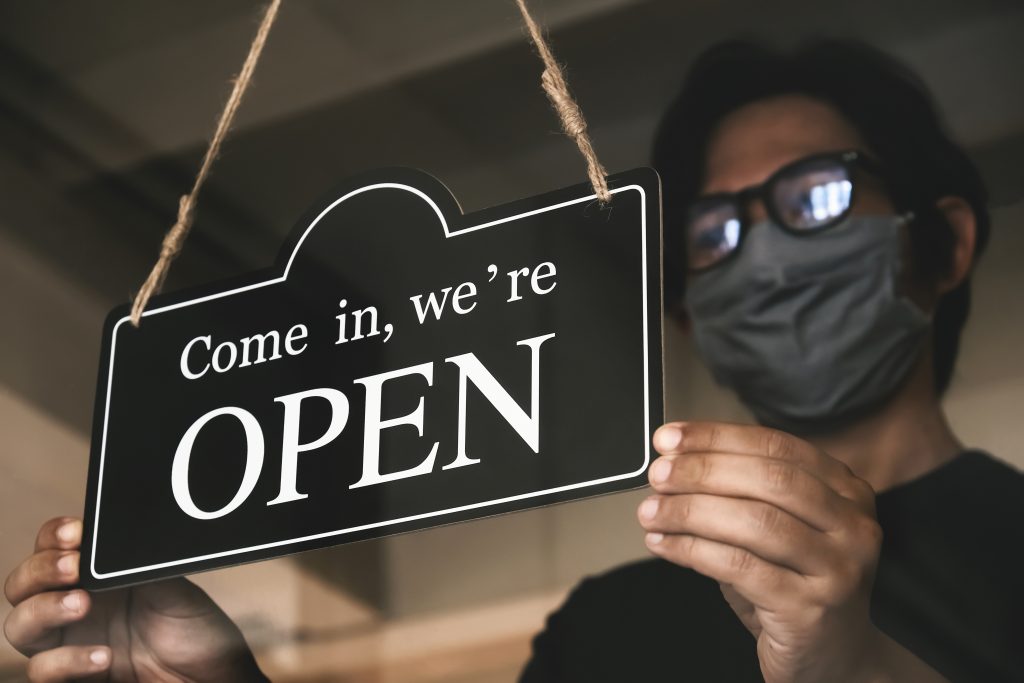While technology dependency has been growing in all industries for years now, the face of retail industry changed after Amazon started its multilevel eCommerce business surpassing Walmart. By 2015, consumers had become so internet friendly that brick and mortar stores were facing a crisis quite unknown to their business till date. However, they were still popular because it is intrinsic to human nature to trust their tactile experience more than just audio-visual while making a purchase. Also, buying from a store was always faster than ordering online. But the pandemic changed it all. 85% Americans have said that Covid-19 impacted their shopping habits in some way, including reduced overall spending, increased online shopping, and increased use of delivery services, reported by Statista.
But things are taking a brighter turn. While a recent McKinsey reports, 60-70% adults are now omnichannel consumer with both sales in brick and mortar stores and eCommerce growing, an eMarketer survey projects that 81% customers are willing to go back to the store.
Growth Market specialist, Bharat Jain at G-Cube suggests, ‘The trends are positive and retail owners should jump to the occasion. Training plays a very important role in this phase of adaptation which will enable the employees to keep up and draw the customers back to the stores.’
Promoting Your Employees as Brand Ambassadors
While the willingness to return to stores is increasing, the affinity towards online shopping is not reducing. Retailers have to step up to encourage the willing customer to take an action and that is possible only by giving them a great experience. As your in-store employees are in charge of the customer experience, this is where your employees can become the true ‘brand ambassadors’.
Train to be an Expert than a Sales Support
A very important part of the online shopping experience is the abundance of information about the product, usage and also comparison charts which is completely unavailable at the stores. Retailers have to fill up this gap by training their employees to become product experts. Providing a continuous learning environment with small nuggets of information based on the category of product they are handling through an automated workflow on the mobile LMS shall help the employees retain knowledge better. The information is also available to them at the point-of-sale where they can not only provide demo of a particular item but compare the features while giving sales advice to the customer.
In-person Search Optimization
While looking for an item on the shopping app, a customer gets choice of both browsing and searching. So basically, they have the option to look through a lot of items and also search for anything specific they want. In a store this search engine is your employee who is helping the customer find the right product. At times, they cannot find the right items while searching manually and this leads to higher waiting time and dissatisfied customer. Integrating your retail management system with your LMS can bring all the information regarding the shelf, storage, and product details in one place which the employees can access with simple keyword search which is far more efficient. This reduces customer’s wait time replicating the online shopping experience helping your retail employees give a great experience to the buyer.
Keep Your Employees Motivated
According to National Retail Federation, the attrition rate in retail in USA is just above 60%, which is very high considering the overall average of 19%. Therefore, keeping your employees motivated to put in the extra effort is essential. An enterprise LMS provides you the opportunity to gamify the learning strategy for your retail employees. With easy integration with multiple business systems, you can give redeemable points to the employees based on their real-time KPI data, create leaderboards, and track the star performers. Getting recognized for one’s effort always makes them put in some extra.
To ensure the above you will have to invest significantly in developing and delivering training programs that can inculcate these habits and behaviours. However, that is not the final step, as the learning content has to be distributed along with follow-up trainings. Assessments and post-training support has to be delivered as well. To manage such a mammoth operation a learning management system which is equally effective on all the devices and is configurable to adapt to your organization’s culture is necessary.
G-Cube Learning Management Suite is being used by top retail industry players with positive results. To know more about the implementation strategies, write to us at in**@gc**********.net and talk to a learning consultant.








